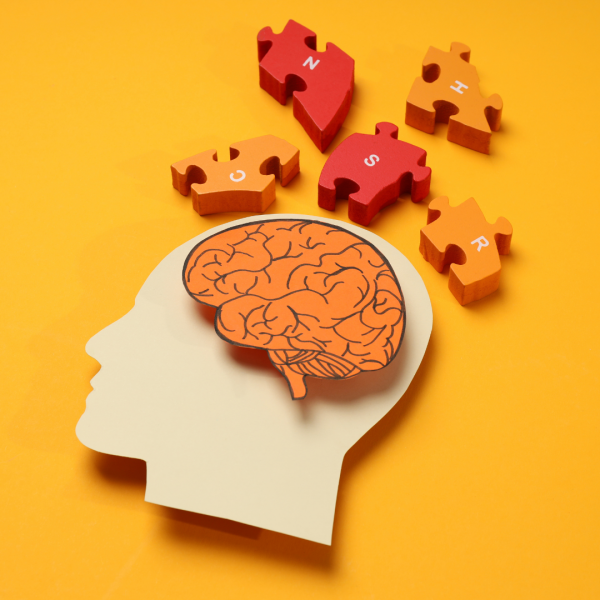Dementia is a term we often hear, especially as our loved ones age, but understanding what it truly means and how it impacts individuals can be challenging. With over 55 million people living with dementia worldwide, it’s a condition that affects not only those diagnosed but also their family, friends, and communities. In this guide, we’ll explore what dementia is, the ways it can affect people, and practical ways to support family members facing this condition.
What is Dementia?
Dementia is not a single disease but an umbrella term for a group of conditions affecting cognitive abilities, particularly memory, problem-solving, and language. The most common type is Alzheimer’s disease, but there are many others, including vascular dementia, Lewy body dementia, and frontotemporal dementia.
In simple terms, dementia happens when nerve cells in the brain become damaged or die off, disrupting communication between brain cells. This damage gradually reduces cognitive functions, meaning people with dementia may struggle with memory, comprehension, and eventually even routine tasks. Since dementia is a progressive condition, symptoms worsen over time, making early diagnosis and support crucial for quality of life.
Symptoms of Dementia
The symptoms of dementia vary based on the type and progression of the condition, but some of the most common ones include:
- Memory Loss: One of the earliest and most noticeable symptoms, especially with Alzheimer’s disease, is short-term memory loss. People may forget recent conversations, appointments, or familiar faces and places.
- Confusion and Disorientation: Individuals may struggle with time, place, or remembering familiar routes. Getting lost or feeling confused even in known environments becomes more common.
- Difficulty with Communication: As language centers are affected, those with dementia may struggle to find the right words or follow conversations, leading to frustration or withdrawal.
- Impaired Judgment and Decision Making: Routine decision-making can become hard as the disease affects reasoning and problem-solving abilities.
- Mood and Personality Changes: Emotional responses may shift, causing increased irritability, anxiety, or apathy.
Since each type of dementia affects the brain differently, symptoms and their severity can vary widely from one person to another.
How Dementia Affects People
Living with dementia presents challenges that extend beyond cognitive symptoms, impacting everyday life in profound ways.
- Daily Activities
Dementia can turn even simple tasks into daily struggles. Managing finances, cooking, and personal hygiene may become confusing or overwhelming as cognitive functions decline. Family members may notice loved ones needing help with previously routine tasks. - Social Relationships
Communication difficulties and memory issues can strain relationships. A person with dementia may forget names, mix up events, or struggle to participate in conversations, which can sometimes lead to isolation and withdrawal from social situations. - Emotional Health
Mood changes are common, and many people with dementia experience periods of depression or anxiety. Frustration often results from an awareness of the condition, especially in its early stages when individuals are aware of their memory loss. As dementia progresses, fear and confusion can become more prevalent, requiring careful and compassionate responses from those around them.
How to Support a Family Member with Dementia
Supporting a loved one with dementia can be both rewarding and challenging. Here are ways to provide meaningful support:
1. Educate Yourself and Your Family
Learning about dementia and its progression can help you understand your loved one’s needs better. Knowing what to expect allows you to anticipate changes and respond compassionately.
2. Prioritize Communication
Communication is often one of the first areas affected, so using patience and simple language can make a significant difference. Try using short sentences, speaking slowly, and maintaining eye contact. Non-verbal cues like smiling, holding their hand, or nodding can also convey understanding and comfort.
3. Encourage Daily Routine and Familiar Activities
Routines help bring a sense of normalcy and reduce confusion. Encourage your loved one to participate in familiar activities they enjoy, whether it’s gardening, cooking, or painting. Activities should be adapted as their abilities change but can be an essential source of joy and engagement.
4. Be Patient with Behavioural Changes
Personality changes, mood swings, and outbursts can be challenging to witness. Remember that these behaviours are symptoms of the disease, not personal attacks. Patience, understanding, and a calm approach are key in these situations. Seeking advice from support groups or dementia specialists can provide helpful coping strategies.
5. Provide a Safe Environment
Safety becomes a concern as dementia progresses, so small adjustments to the home can make a big difference. Removing tripping hazards, installing locks on cabinets with harmful items, and ensuring adequate lighting can help prevent accidents. You might also consider incorporating tools like medical alert devices to keep track of your loved one’s movements if wandering is a concern.
6. Look After Your Own Wellbeing
Caring for someone with dementia can be emotionally and physically demanding. Remember to take breaks, reach out to support networks, and consider respite care when needed. Support groups, both online and in-person, can provide a community of individuals going through similar experiences, offering both advice and comfort.
When to Seek Additional Support
As dementia progresses, professional help may become essential. Consulting a healthcare provider or reaching out to a dementia support organisation can provide access to resources like in-home care, memory clinics, and counselling services. Connecting with professionals can improve the quality of life for both the person with dementia and their family.
Conclusion
Dementia is a life-changing condition that affects not only those diagnosed but also their loved ones. By educating ourselves and approaching each day with patience and compassion, we can better support family members navigating dementia. From fostering understanding to providing daily care and making memories, each step of the journey is an opportunity to show love, respect, and dedication to those who need it most.
Supporting someone with dementia is no easy task, but together, we can help create an environment that offers comfort, dignity, and understanding in every moment.




